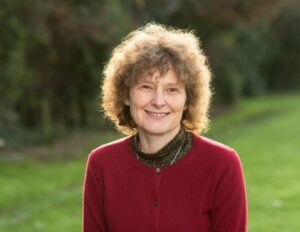University of Oxford
11a Mansfield Rd
OX1 3SZ
UK
Benefitting Human Wellbeing Through BNG Action
Outline of research:
This project will investigate how Biodiversity Net Gain (BNG) can be used to benefit human wellbeing alongside biodiversity. The term wellbeing refers to a positive physical, social, and mental state and can be thought of as consisting of three elements: material (e.g. housing), relational (e.g. family relationships) and subjective (self-reported). Integrating wellbeing into BNG planning is an important step as it increases people’s acceptance and support of BNG activities and thus increases BNG’s sustainability.
The project is based on a development located just outside of Oxford, Begbroke Science Park, which is undergoing extensive expansion. Choice experiments will be used to investigate people’s preferences for BNG activities. During choice experiments, respondents are presented with a series of choices between hypothetical situations (in this case, different BNG options). These alternative choices are comprised of a series of features, known as attributes, which occur at different levels. Attribute creation is done through close collaboration with developers and consultants as well as potential respondents which ensures they are both feasible and valued by local people. Through analysing the choices people make, preferences for BNG activities are revealed. This project will contribute to efficient use of BNG funding for maximum wellbeing gains, help BNG benefit both biodiversity and local people and promote community inclusivity.
Aims & Objectives:
The overall aim of this project is to explore the preferences of workers & potential residents at Begbroke Science Park for BNG activities. Within this, there are two main objectives:
- Identify BNG activities of highest value to the study population
- Highlight demographic differences in preferences for BNG activities
Summary of Planned Activities:
BNG at this development will aim to contribute to both positive biodiversity and wellbeing and simultaneously recognise funding is limited and thus must be used efficiently. This project will include high levels of cooperation with the Begbroke developers, consultants and workers/potential residents which will help achieve this. Cooperative activities include:
- Focus groups with developers/consultants to design feasible BNG activities
- Focus groups with workers/potential residents to design BNG activities around biodiversity they value
- A pilot study to trial questionnaire design
- A full questionnaire including socioeconomic questions (e.g. age, gender, nationality), open ended questions (to investigate how individuals assign wellbeing to biodiversity) and the choice experiment itself
Project Outcomes:
This project will reveal:
- Preferences of survey population for BNG activities
- Heterogeneity in preferences for BNG activities
This will allow/contribute to:
- Efficient use of BNG funding for max wellbeing gains
- Beneficial impacts on biodiversity and wellbeing
- Promotion of inclusivity through future resident involvement
Project overview
Researchers

